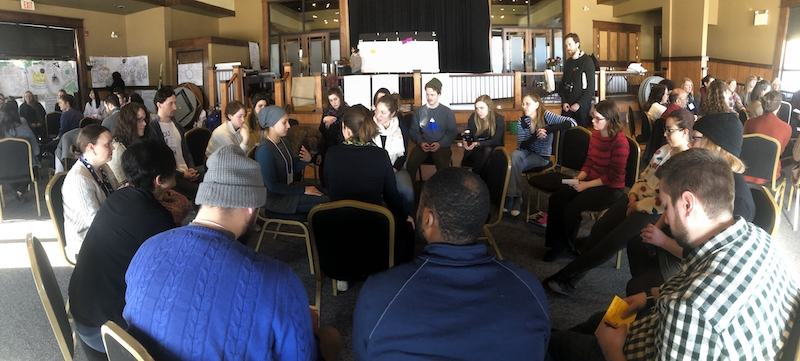
I live on a small island in the sea with a very complicated water supply. We have some community water systems, and a complex geology that means that many people are on wells, and nearly every well seems different. As our population increases, and as the moisture decreases, we are finding ourselves subject to more and more restrictions on what we can do with water. This is as it should be. We cannot live on our island beyond our limits, with a bigger water footprint than the water we have available to us. In the past, you were free to …

Came across a Medium piece by Sahana Chattopadhyay today in which she discusses facilitation competencies for working in emergence and complexity. She points out in the article that this kind of facilitation practice is different from what passes for facilitation in many more familiar and simpler contexts: Facilitation is often mistaken for some methods and processes that experienced trainers use during workshops to run successful sessions. I am not talking about that kind of facilitation, which is an important skill by itself. I am talking about Facilitation as a way of being that offers safe space, creates a container for …

My last blog post here was back in March, at the beginning of a colossal few months of travel and work during which I was away from home and working in the Netherlands, Germany, northern Ontario, New York City, Vancouver Island, and several locations in Japan. In the course of my travels I was away from home for 64 days, had two major airline cancellations (one airline went bankrupt, one couldn’t get me home without massively creative re-routing). I probably doubled the number of foods I’ve tasted in my life, just from the 28 day trip to Japan alone, and …

Perhaps I need to curate a series of posts called “The Whatabout Chronicles.” When I’m teaching participatory leadership or sharing complexity tools, folks who are wedded to traditional linear mind and tool sets often raise objections. “Complexity would be nice, but we haven’t got the time. We have to get this problem solved now, and we need a plan to do it.” It’s a hard one because often it’s obvious that the problem is complex and the desire for a linear solution, while urgent-feeling, is just not possible. But if you can’t see it that way, objections get raised. In …

I’m on the road, currently in Columbus Ohio, working my way through a two week road trip that has taken me to Ontario to visit family and to New Brunswick where I was part of a remarkable hosting team for the Art of Hosting Working Across Divides. It was a timely gathering for 70 people from government, civil society, and social enterprise to come and learn how to work with differences. In Canada’s only bilingual province, language is a massive difference between people, and New Brunswick has a multitude of language cultures. There are 34 local French accents alone in …

